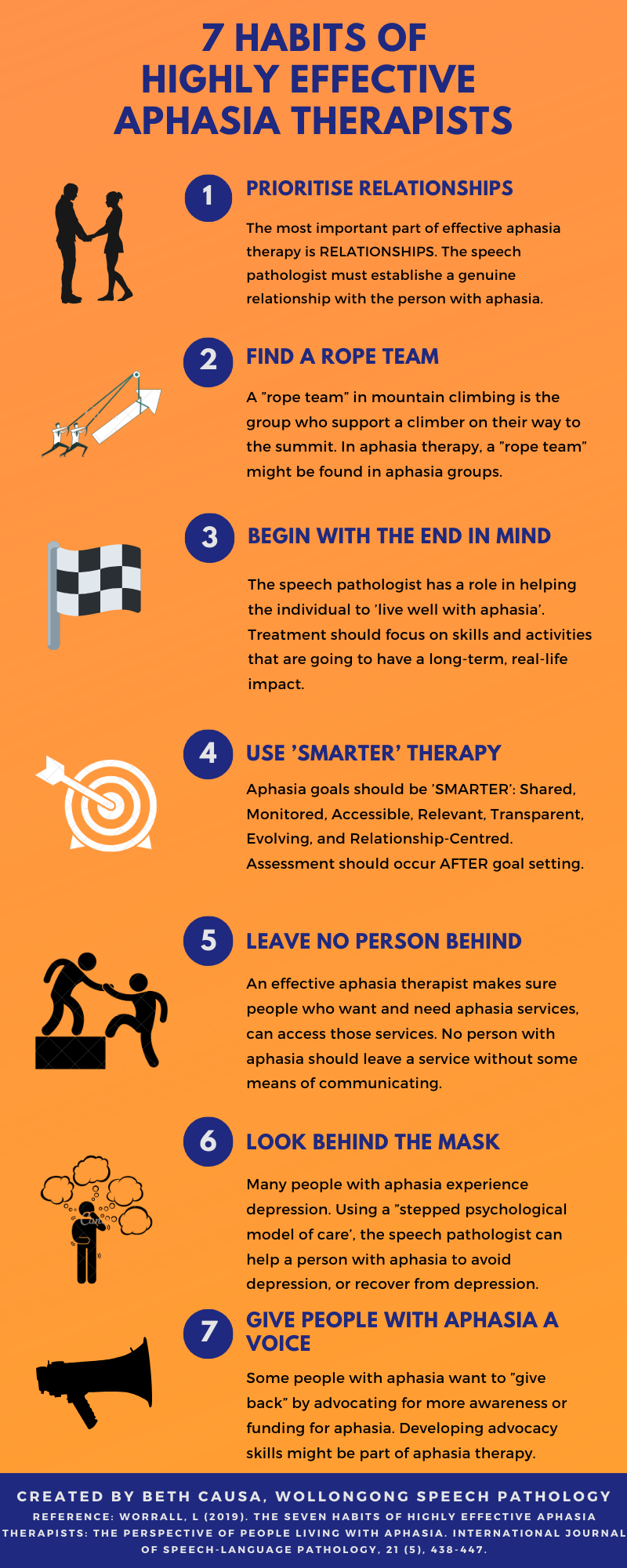Aphasia is a communication disorder that often occurs after stroke or brain injury. It can cause difficulty with speaking, understanding, reading and writing. Importantly, aphasia does NOT affect intelligence. I’m not going to spend time here talking more about what aphasia is. If you want to read more about that, you can check out our previous blog post here, or download our client handout here, or go to the Australia Aphasia Association website here.
If you know someone with aphasia who might need support with their communication, but you feel overwhelmed or unsure about where to turn for help, THIS post is for you. Today’s post gets to the heart of the question: what makes a good aphasia therapist? Before we go any further I will make an important disclaimer – these are not my own ideas, nor an attempt at a hard sell. Actually, we are indebted to our amazing team of aphasia researchers in Australia and internationally, who have spent years working together with people with aphasia, to find out what works and what is needed. Their work culminated in a recent research paper by Linda Worrall, titled “The Seven Habits of Highly Effective Aphasia Therapists: the perspective of people living with aphasia”.
The 7 habits of highly effective aphasia therapists
These 7 “habits” are meant to be like a guiding light for speech pathologists, people with aphasia, and the community. They help us to see if our aphasia therapy delivers what is wanted and needed. They help us to find areas to improve. They might help clients to advocate for something to change in the way a therapy program is being offered, if you feel something is missing.
Why an infographic?
An infographic is a great way to present information quickly, clearly, and visually. It gives you a snapshot, to introduce you to these ideas. It doesn’t tell you everything you need to know about these 7 habits of highly effective aphasia therapists. If you want to read more, here’s the link to the original paper.
I love infographics because I learn visually! As an aphasia therapist, I am making a promise to myself to stick to these 7 habits, and a nice infographic is a handy visual reminder.
Use this infographic as a “quick look” guide, to make sure your aphasia therapy is effective




